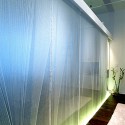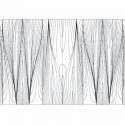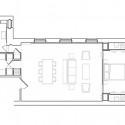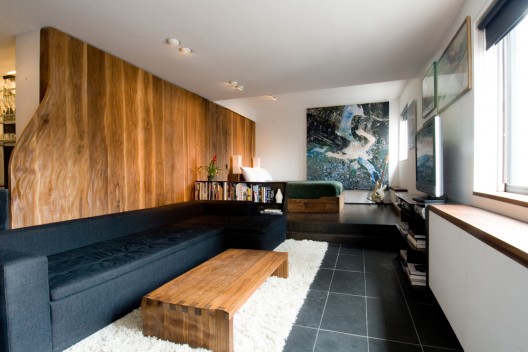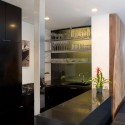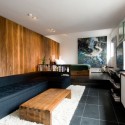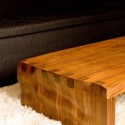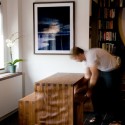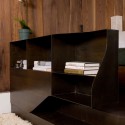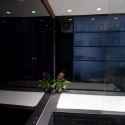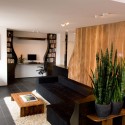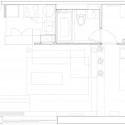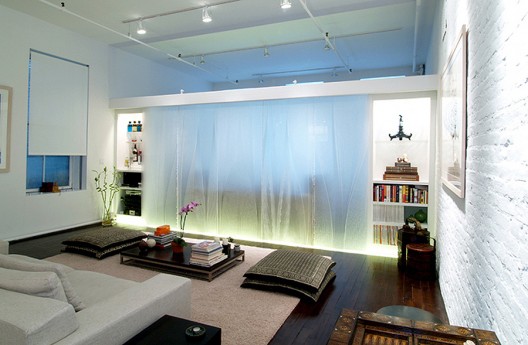
While visiting Gage Clemenceau Architects we learned about their design process and research on building new forms through diverse design strategies that range from the use of automotive design software to a heavy reliance on robotic digital fabrication tools.
This time we bring you two residences in New York by Gage Clemenceau - Mark Foster Gage & Marc Clemenceau Bailly.
Residence in SOHO
Griffin Residence
In the past decade architectural design has become increasingly reliant on the limited form-making tools offered in standardized architectural software packages. In order to overcome such limitations Gage / Clemenceau Architects proposes a new model of design research that creates collaborations with other disciplines of design. The sole purpose of such research is to discover innovative methods for creating, manipulating, and fabricating new genres of form for potential use in architecture. Both the institutional and residential projects of the firm capitalize on these alliances, often involving diverse design strategies that range from the use of automotive design software to a heavy reliance on robotic digital fabrication tools.
The products of these collaborations posit that the geometric, indexical, mapping, and performance based ambitions of the digitally produced architectures of the past decade have failed to yield the intended results. Instead of relying on these, now conventional, architectural fictions for legitimacy, the work examines the emerging interest in formal aesthetics as a vehicle by which architecture can seek engage a new and vibrantly altered 21st century cultural context. In place of the semiological crutches of the index, the icon, and the symbol, the research revels instead in the emerging formal positions such as the beautiful, cute, elegant, sensuous and lovely.

